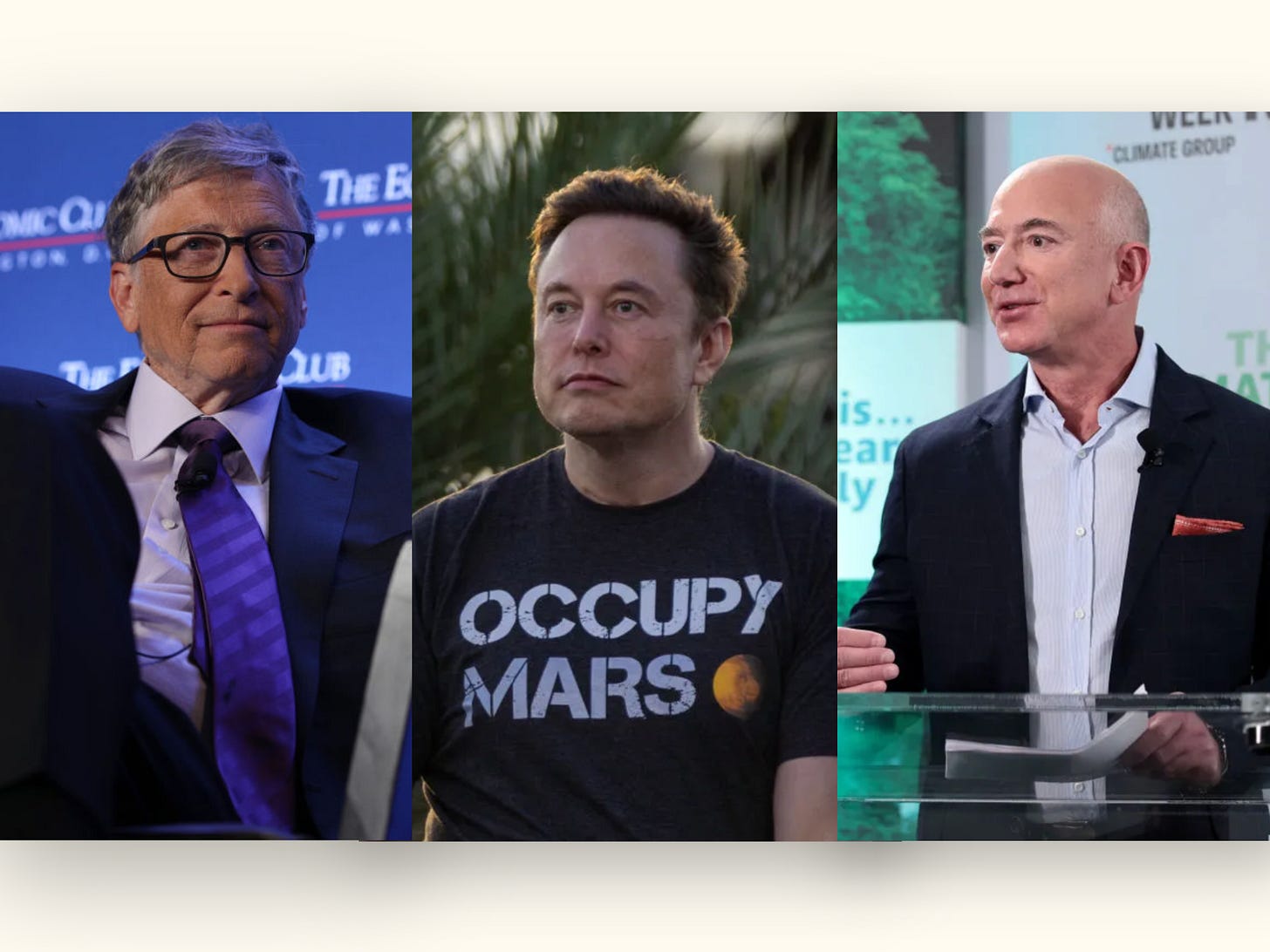Our modern-day Columbuses
Like the controversial colonizer, billionaires are trying to lead the discovery of a new world—and they're approaching it with a similarly destructive mindset.
Why do so many people look to billionaires for solutions to the world’s biggest problems, like climate change?
New Zealand-based conservationist Joseph Merz, who I spoke to for last week’s newsletter on ecological overshoot and the so-called “human behavioral crisis,” specula…



